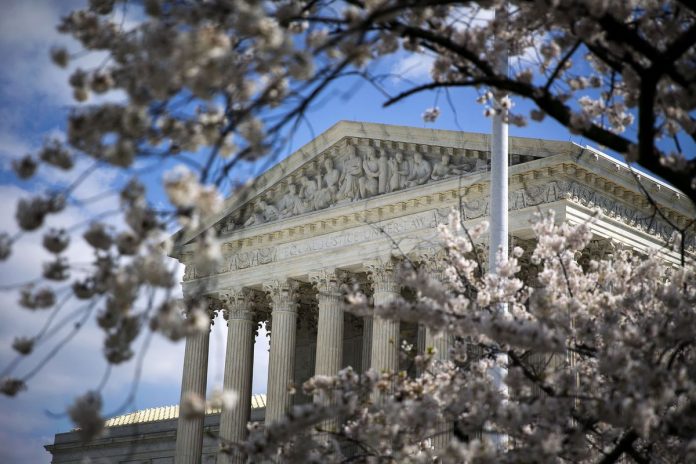
PROVIDENCE – The U.S. Supreme Court’s decision Wednesday to revoke what is known as “fair share” fees from public-sector union members stands in opporition to Rhode Island law that permits unions to charge compulsory fees from union nonmembers, provided that the union negotiated an exclusive bargaining agreement, for its service in negotiating and administrating the agreement.
The impact of the decision is that it would allow public employees to opt out of paying fees to unions, which could potentially weaken the unions ability to function. The fees, known as “fair share” payments, were legal in 22 states in the country, including Rhode Island and Massachusetts, and were designed to prevent nonunion members from benefitting from union negotiating contracts without contributing to the union’s expenses. The Supreme Court decided in a 5-4 vote that the compulsory nature of the fees constituted a violation of free speech, reversing a ruling from 1977.
The decision is expected to reduce the union’s abilities to negotiate with the government on issues such as pensions and wages.
“We expect the Supreme Court decision may lower public union revenues, membership and bargaining power in the 22 states that can no longer allow mandatory fees,” Emily Raimes, an analyst at Moody’s Investors Service, said in a statement. “These developments could change how state and local governments set employee wages and pensions, resulting in a positive long-term impact on government finances.”
In Rhode Island, the state’s Democratic leadership criticized the decision, repeatedly saying that the move was detrimental to the middle class.
The decision “will curtail the ability for public employees to obtain fair wages and benefits,” stated Attorney General Peter F. Kilmartin. “These workers are our neighbors, our teachers, police officers and firefighters, all of whom work hard each day serving our communities and contributing to our quality of life. They have already had to endure severe cutbacks to pension plans, health coverage and other benefits, while paying more, and today’s decision will further erode their ability to collectively fight for livable wages, retirement security and other important protections.”
Gov. Gina M. Raimondo framed the decision as “part of a larger effort to weaken labor and diminish the middle class,” in a statement issued Wednesday. “With ever-growing income inequality and ideologically driven efforts in Washington to undermine working families, the labor movement is more important now than at any other time in recent memory.”
The governor also stated her intention to “review this ruling and if any changes are required, we’ll make them at the bargaining table with our unions.”
The R.I. Department of Administration said that it is still reviewing the decision and will have more information on its impact at a later date.
U.S. Rep. David N. Cicilline, D-R.I., also criticized the court’s ruling, stating that, “this decision is the latest in a long line of corporate-funded attacks on working people. Wall Street, the big banks and big business have spent decades trying to undermine unions by denying working people the freedom to organize and bargain collectively. They’ve done everything they can to make it harder for working men and women to negotiate for decent pay and fair working conditions.”
The decision did not draw criticism exclusively. The National Federation of Independent Business Small Business Legal Center issued a statement touting the ruling as a boon for small business.
“The Supreme Court’s decision in Janus v. American Federation is a major win for the small business community,” said Karen Harned, executive director of the NFIB Small Business Legal Center in a statement. “For too long dissenting public employees have been forced to fund public employee unions that they do not agree with. In the past, armed with a guaranteed stream of revenue, public employee unions grew in influence and power, shutting out other voices, including that of small business, who cannot afford increased taxes, more red tape and onerous regulations.”
Locally, the Rhode Island Center for Freedom & Prosperity supported the decision, saying that it will lessen public unions’ money and power. The center’s CEO Mike Stenhouse stated that “the greatest public benefit will be improvement in public education. Many education reforms that would improve schools in disadvantaged communities are prevented by union collective bargaining agreements. If unions are no longer able to force teachers who disagree with them to fund their bargaining positions, unions will have less power to impose ineffective policies into contracts.”
Local 580 of the Service Employees International Union issued a statement on the decision, which it said was pushed by anti-worker extremists. “We need to stand together, united, and fight to keep those things that we truly value in the workplace: Fair wages, affordable health care, job security and seniority”, said Kathy McElroy, president of Local 580, in a statement. The union did say that the decision was a “blow to the heart of unionism.”
The case is Janus v. American Federation of State, County and Municipal Employees, Council 31, 16-1466.
Chris Bergenheim is the PBN web editor.












